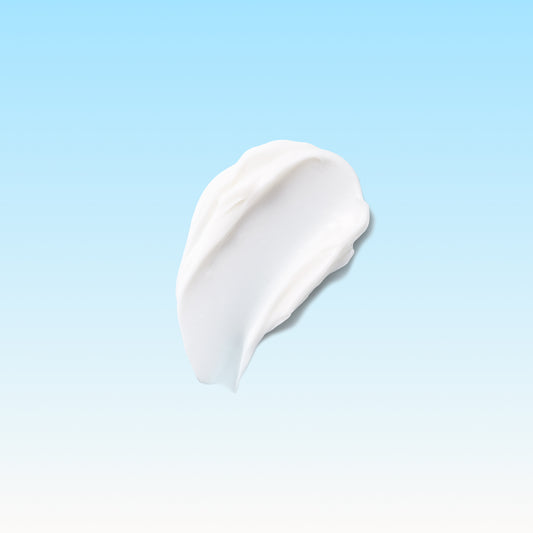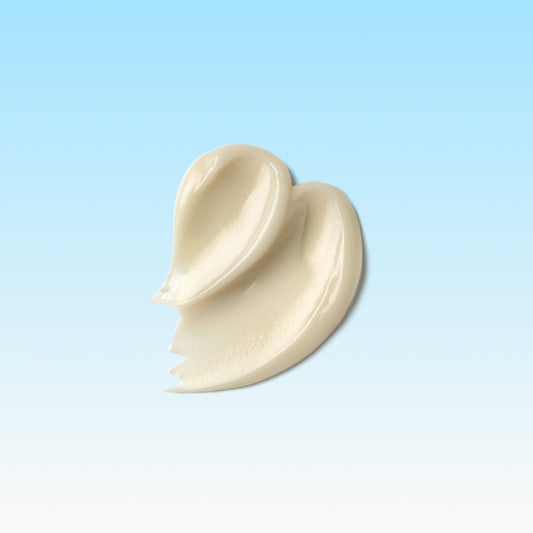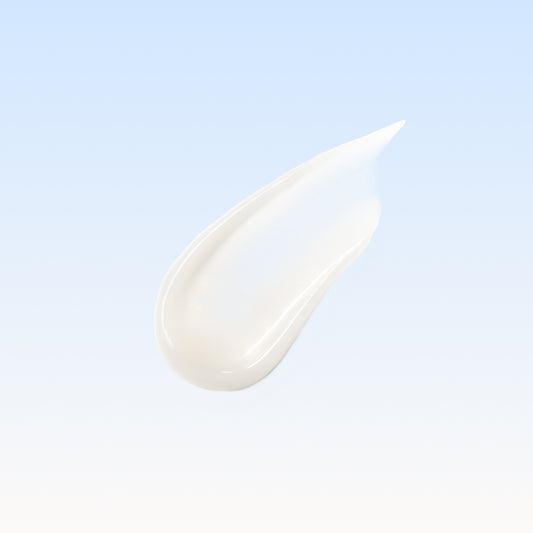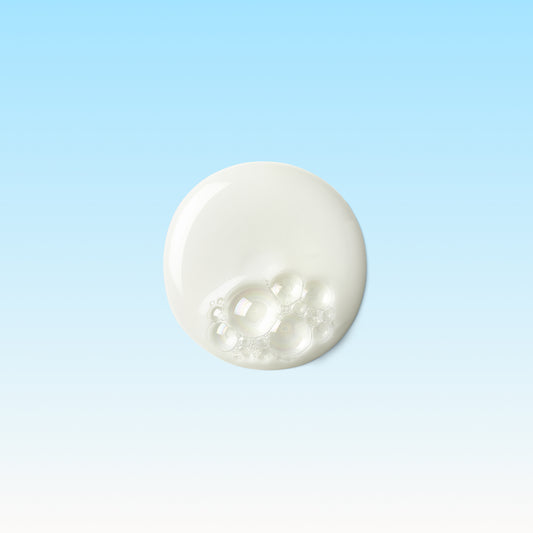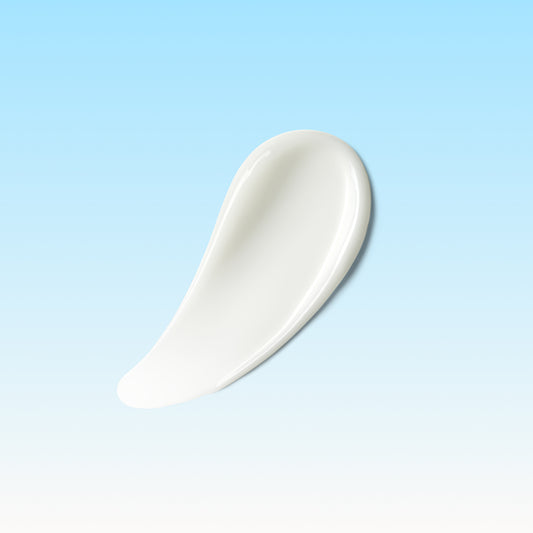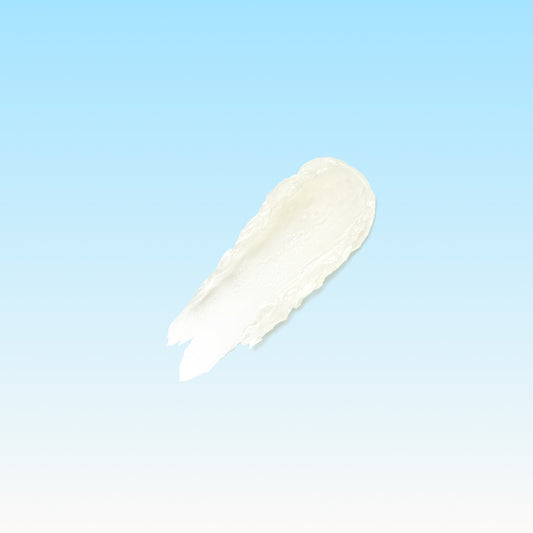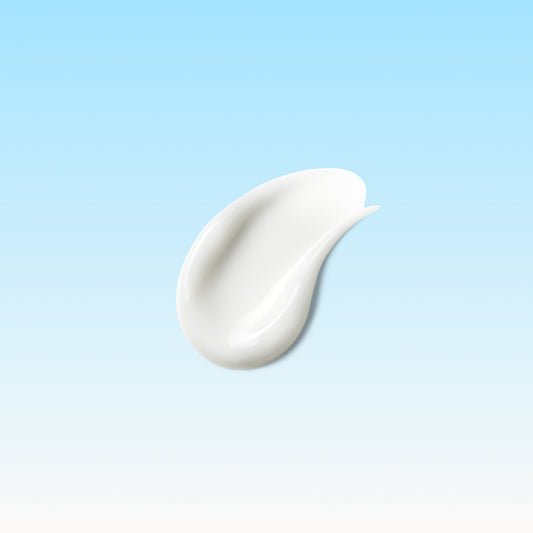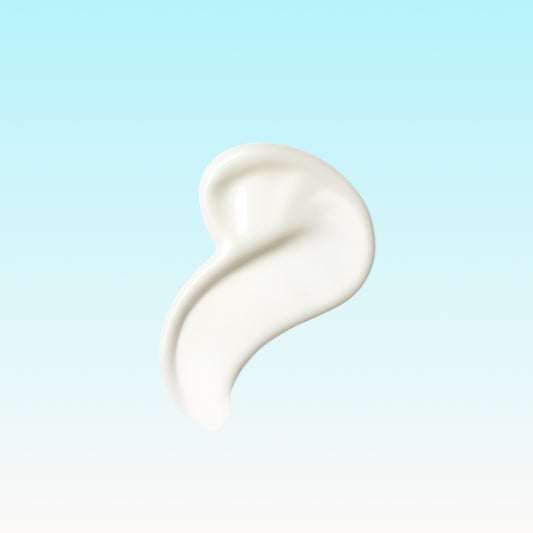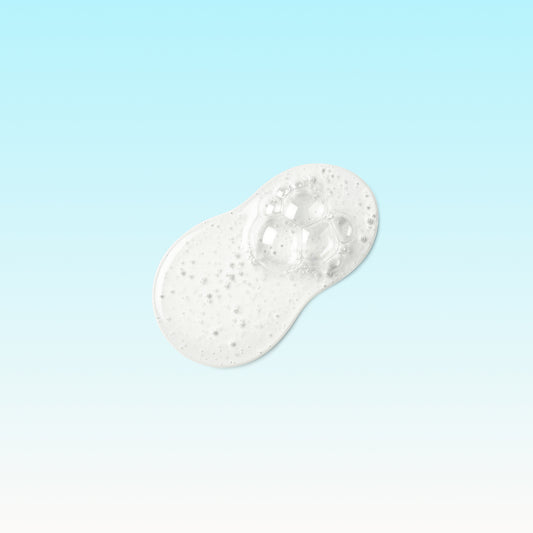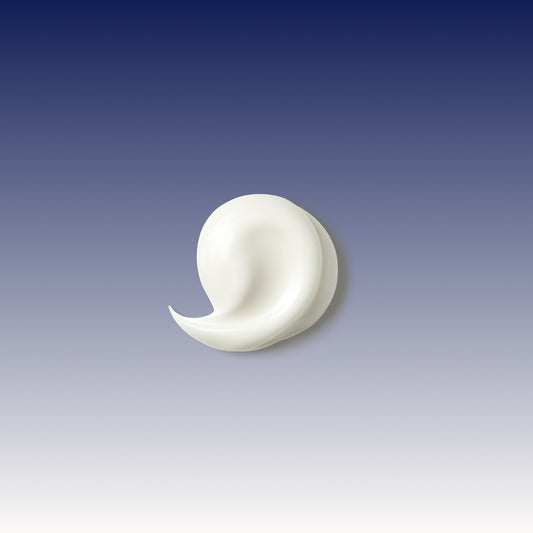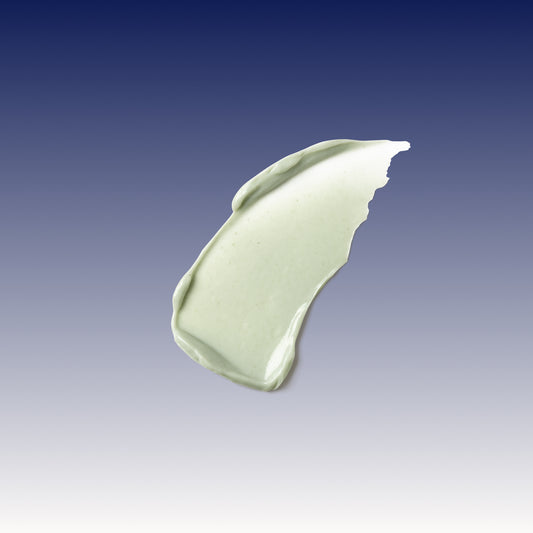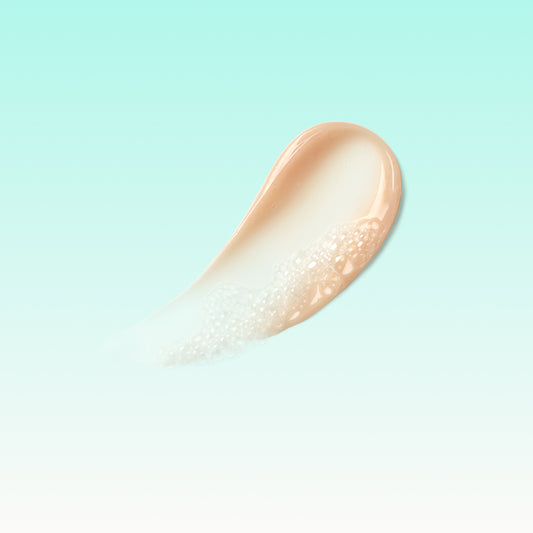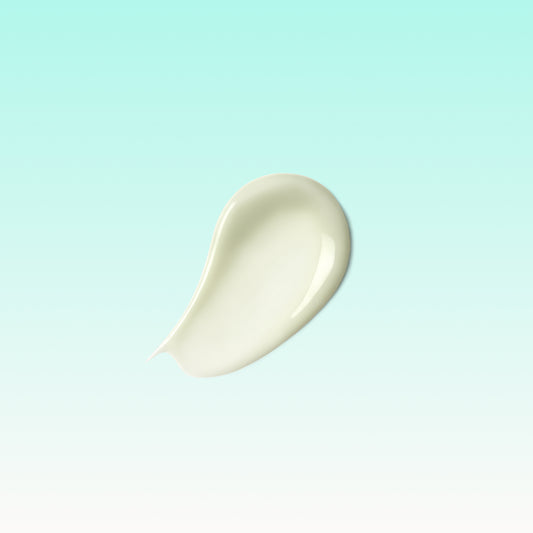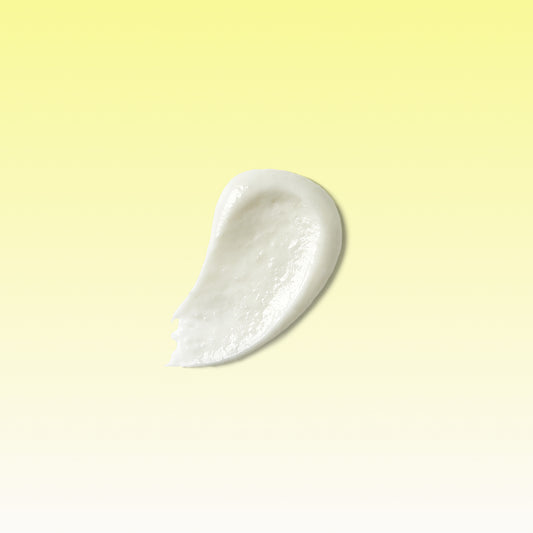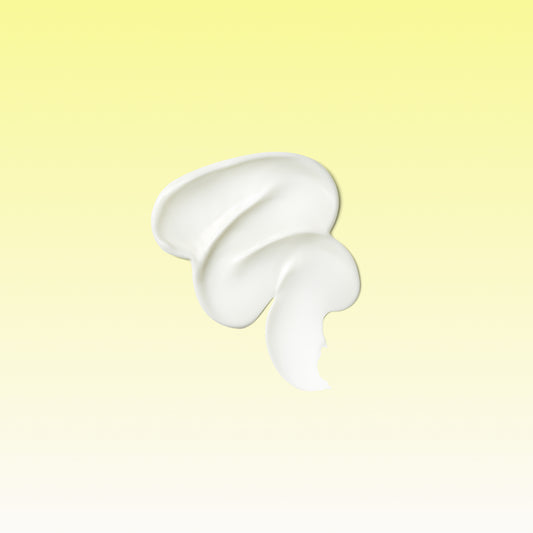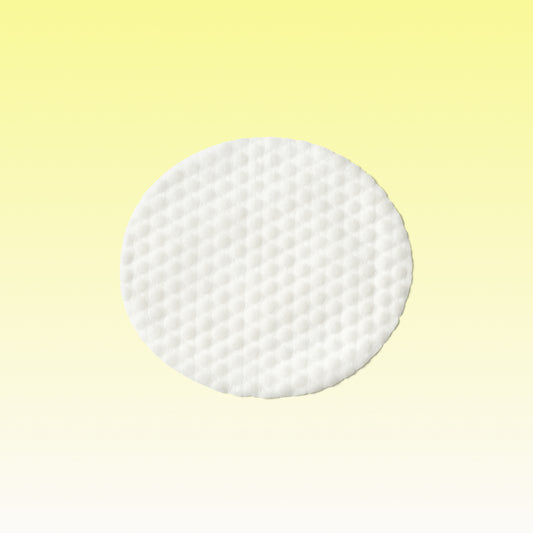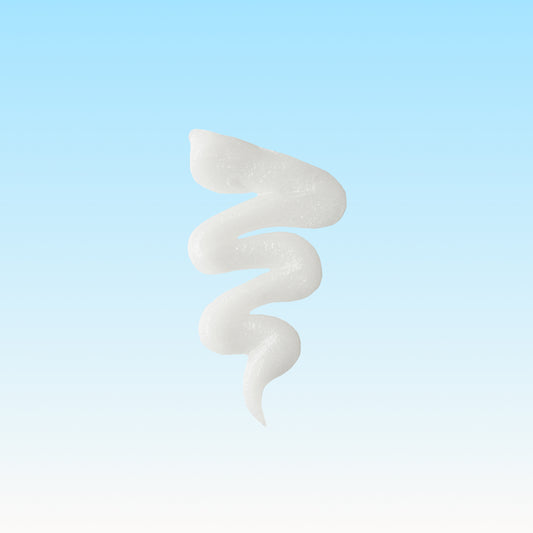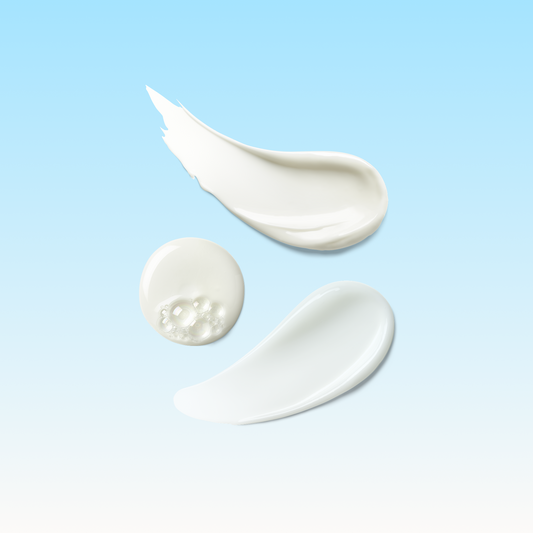S1:E6 Is Sugar Face Really a Thing? With Dr. Nigma Talib
[Amy Risley] Total Skin Nerds is brought to you by Skinfix. we're clean, clinically active and on a mission to help heal your skin. Welcome to Total Skin Nerds. I'm Amy Risley, the CEO of Skinfix and a first rate skin nerd myself. On this episode, my guest is Dr. Nigma Talib. Dr. Talib believes healthy, younger looking skin starts with diet and is heavily informed by what's happening in your gut. She can even tell what you're eating and what you should stop eating just by looking at you. I've been so curious about Dr. Talib's diagnostics that I invited her to be my guest today from Los Angeles. Stay tuned now to find out what she means by the four phases of aging, wine face, sugar face, dairy face, and gluten face. Plus, how to avoid puffiness, dark circles, acne, and sagging skin, and what supplements and topicals Dr. Talib thinks you need to keep your skin at its healthiest. Stick with me nerds. Don't go away.
So welcome Dr. Nigma Talib to Total Skin Nerds. It is such a pleasure having you on our show. You treat so many incredible people, a lot of famous people. And what I love about your practice is that you're a naturopathic doctor and a medical aesthetician. So, you really have a very interesting perspective on naturopathic medicine, but directly how it relates to skin. And we're going to talk a lot about some of your philosophies and they're really interesting. But I'm interested to know first and foremost, what drew you to naturopathy? And also, when did you kind of start to make the connection between what was going on in the gut and naturopathic medicine and what's happening on the skin barrier?
[Dr. Nigma Talib] Yeah. So, when I was a teenager, I had a lot of skin issues, eczema and also a lot of gut issues. And so my father took me to... My mom and dad would always try to research the best thing. And my dad was kind of the head resource of the family. When I had exhausted all research with gastroenterologists and conventional healthcare models, he sent me to a naturopathic doctor. And after undergoing some food intolerance testing, stool analysis, it was a crappy job, but I did it. And other lab work and being assessed and actually having my abdomen palpated by somebody.
Somebody feeling and pushing down and figuring out, is there an issue with the ileocecal valve? Is it lower ascending colon? Is it epigastric? Actually somebody treating me versus a seven minute visit in an office and just giving me a prescription. I really got to understand how my body worked and the foods that I was eating, how it was affecting my digestion and my skin. And voila, after not even a month of being on a naturopathic program, I literally had almost 100% clearing of my eczema and almost 70 to 80% relief of digestion. So, to me, that was a type of medicine I wanted to go into, when I experienced it myself.
[Amy Risley] Yeah. Well, I mean, it's profound when something can help so quickly and done in a way too, that is better for you. And a lot of ways than taking prescription medication. They talked on an interview that I listened to about naturopathic medicine being biochemical detectives, which is such an interesting perspective, is really kind of unwinding all of the things that create the symptoms rather than just treat the symptoms, which is what I love about it. What in particular did you have to sort of eliminate from your diet in order to clear up your gut issues and your eczema?
[Dr. Nigma Talib] Well, it wasn't fine, I have to be honest, because they were my favorite foods. Garlic, which is in a lot of-
[Amy Risley] Okay.
[Dr. Nigma Talib] ... our cooking. I have ancestry from India, so everything has garlic in it. So, I had to take out garlic. I had to take out dairy. I had to take out things like spinach, which I love spinach. And so one man's poison is another man's medicine. So, just because something appears to be healthy, it may not be healthy for you. I took out eggs as well and soy. So, those really, really helped me entirely because they were particular... My body was fighting with these foods and they were causing further inflammation in my body. So, food intolerance testing has to be done by a naturopathic doctor properly.
And there has to be proper advice because there's a lot of mixed questions on... People have different questions around, what is a food intolerance? And if I retest, will it show up again? No, is an art to testing food intolerance. And this one doctor, I went to see, Kelly Farnsworth, who then I ended up working with was incredible explaining it and how it works in the body, avoiding these foods and then reintroducing some of them down the road. Some, you will never be able to reintroduce, but some you might be able to take on occasion.
[Amy Risley] Interesting. And so most of these foods you continue to avoid?
[Dr. Nigma Talib] I do. Sometimes during this quarantine time, I'm not going to lie, I did eat quite a bit. I gave myself permission. And it's interesting, it doesn't always come out as eczema or digestive issues, it could come out as weight gain. So, you can actually gain weight from eating some of these food intolerances because they're causing inflammation in your body, water retention, and they're also creating your thyroid to be not as optimally active as it normally should. So, lots of things can happen with food intolerances.
[Amy Risley] Yeah, it's interesting. I've dealt with a lot of food intolerances myself that we've fundamentally sort of brought back to insulin resistance. And so I've started to understand that I have insulin resistance and there are certain foods that are kind of creating this chain reaction. What I love about naturopathic medicine is that you go so deep. You go so deep in terms of the analysis that you do and the blood work that you do. And you kind of look at things at a much deeper level, which is just fascinating. One of the things that you talk a lot about is some of the principles of Chinese medicine that you've brought into your practice, and in particular you talk about face mapping. Can you explain a little bit about what face mapping is and how that sort of skin barrier is a view to what might be going on inside the skin?
[Dr. Nigma Talib] Yeah. In naturopathic medical school, we study traditional Chinese medicine and acupuncture. And we look at the, I was always very interested in the face mapping. Whenever part of our course of TCM, traditional Chinese medicine, was looking at people's face without any makeup on and looking at maybe where there could be issues. You can tell a lot by what's on somebody's space, what their face looks like, as to what's happening in the body, so under the eyes, kidney stuff going on, small intestine, various parts of stomach areas, lung, different parts of the face will reflect different organs from a traditional Chinese medicine perspective.
So, that was already part of my DNA of learning by naturopathic medical school. And then I use that alongside my clinical experience with patients. When I kept seeing gluten face sugar, face, dairy face, and wine face, and I would take those faces and I would call my patients on it and say, "Hey, you've got dairy face today." And they'd be like, "How did you know? How did you know? And it was just for me looking at their face that I was able to face map them. Because when you're seeing patients, you really need to observe them, you need to be connected with your patient. And part of that was me observing the patient's skin and the different areas of the skin, what is looking more inflamed than it was last time. And I would document that in my notes and hence came up with the four phases of aging.
[Amy Risley] I love the four phases of aging. And I want to do a deep dive into that because you think about all of the... I'm a Gen Xer, and the Xers and the boomers have been traditionally all about buying really expensive skincare products, the Creme de la Mer and the Sicily's to treat our faces. And yet often based on your theory of the four faces of aging, what we really need to be doing is looking at our diet first. And I think it's just fascinating. So can you walk us through the four faces and what are sort of the visual cues that somebody has gluten face or dairy face or sugar face or wine face?
[Dr. Nigma Talib] Oh, boy. Yeah. I mean, there are four phases. If you want to start and talk about, for example, let's talk about dairy face because that's the easiest one to talk about. Dairy phase is from consuming anything from cows' milk, goats' milk, sheep's milk, anything from an animal, anything that's white basically, and liquid that comes from an animal is, I'm going to give you dairy face. And dairy face basically is you get the puffiness around the eyelids under the eye, you get eye bags, darkness under the eyes. You can get acne, breakouts. Your skin is not as, how do you say, it just looking more kind of grayish color and appearance.
[Amy Risley] Okay.
[Dr. Nigma Talib] And not everyone with dairy phase will have all of the characteristics of dairy phase. You can have one or two features of the dairy phase, but it's really prominent, especially people with breaking out, irritation, rashes, kind of a rash mixed with acne kind of thing is dairy face as well. So, that's one thing
[Amy Risley] And would say that that's people that are intolerant to dairy, or do you find that across the board that anyone that's consuming a lot of dairy will have some of those visual cues of dairy face?
[Dr. Nigma Talib] So not everyone can take an intolerance test. So, I think observing your skin and seeing if you have these things on your skin that come and go, and you're just like, "Well, I didn't have this last month, and why am I having it this month?" Maybe you're consuming more dairy this month than you originally thought. What then becomes more complicated as you could also have all four faces at the same time. So, it's basically, my book, the Four Week Plan, taking out all four of these was a huge thing in terms of being able to see, is this resolving for me? And most of the time, more than 95% of people that I meet or patients that I see have this resolved.
[Amy Risley] That's crazy, in 28 days. I mean, it is some of our favorite foods that we're giving up. However, to have the anti-aging effects as quickly as 28 days. And I mean, you have some incredibly well-known people that have followed the plan and had remarkable results. So, it's worth it. So, let's talk a little bit about... I am gluten intolerant and I haven't eaten gluten now for about 10 years, but talk a little bit about gluten face.
[Dr. Nigma Talib] So, when we think about gluten, we quite often think about celiac disease and... There are a lot of people that have a gluten problem, but don't have celiac per se. So, it's not all about celiac disease. It's about taking gluten out because it's causing inflammation in your intestines. When it causes inflammation in your intestines, more than likely you're going to get issues of pigmentation on the skin, because that's how it shows up. We see a lot of autoimmune people, conditions that have inflammation on their skin from various, thyroid autoimmune disease is the most common autoimmune conditions.
And so all of this type of thing can cause, this pigmentation around the chin, it can cause puffiness of the face, kind of like you eat pizza the next day, your face is swollen or you wake up in the morning and why is your face swollen? Gluten is going to be most likely the cause of that. So, gluten is a very tough... I mean, we could be here for two days nonstop talking about gluten and why it's not good for you, but you don't have to be a celiac patient to have a celiac type symptoms.
[Amy Risley] Okay. Yeah. I'm a big believer that a lot of people should probably not eat gluten. I'm always sort of banging the drum because it really was pivotal in changing my health and wellness. You talk about sugar and wine phase too. And those two are somewhat interlinked. And I think those are the ones that are maybe the most interesting to our listeners because they're really related to some of the signs of aging that we're trying to fix.
[Dr. Nigma Talib] Sugar is really, really so... It makes so much havoc. And with sugar face in this particular diagram that I go over, you get these acne cysts, you get sagging of the skin, you get great pasty kind of skin. Sugar equals skin sagging. That's the way I always want people-
[Amy Risley] Yikes.
[Dr. Nigma Talib] ... to remember this, because think about how sticky sugar is. It sticks to your white blood cells. It sticks to your microtubials. It sticks to your collagen even worse because when it sticks to your collagen, that's when you can get your skin to sag. So, you have to be super, super careful with dairy. Sorry, not dairy, with sugar and dairy because it causes skin sagging. And you see people say to me, "What is going on? Why am I getting my skin sagging over the last couple of weeks or three weeks?" Well, A, are you stressed out? And quite often, well, stress goes with eating more sugar, goes hand in hand. So, quite often you get people off sugar and it is remarkable, the results you see. Even after one week of stopping sugar, you will see a difference in your skin.
[Amy Risley] Amazing. You talk a little bit about sugar substitutes too. And this was interesting for me because my husband likes to have diet pop. And I tell him all the time, "You are decimating your microbiome." But I obviously don't know the science. Could you just tell us a little bit about that and what's going on with sugar substitutes?
[Dr. Nigma Talib] Yeah. Well, without going into too much detail, you're creating the same response as sugar, if not worse, because then you're actually... There's more, how you say, chemicals in this particular. It's not just straight sugar. And you're triggering all sorts of areas in the brain that's saying, "Okay, alert, this is sugar." It also causes damage to the mitochondria. And some of these artificial diet sugars are worse than actually sugar in itself. So, Diet Coke is actually worse than Coke. Now I'm not saying drink Coke, but if you had a choice-
[Amy Risley] If you have to choose.
[Dr. Nigma Talib] ... just go for coke.
[Amy Risley] Yeah.
[Dr. Nigma Talib] If you're going to do it, do it right. And I don't know, I think there's 30 grams of sugar per thing of Coke. It's this ridiculous.
[Amy Risley] It's crazy.
[Dr. Nigma Talib] For a can of coke or a glass of Coke. And here's the thing, getting people off sugar is a step-by-step process. So I recommend people do it. Try it out for a week and take a picture of their skin before and then take a picture of their skin after, because then they will get some kind of... You want to give people a way to say, "Hey, listen, this is doing something for you." You've been doing this for a week, look at your skin before, look at your skin after. And if I have to use skin as a manipulating tool, I'll do it because we know sugar causes so much damage to the body in general, but if you just start with skin, that'll give you a good starting point.
[Amy Risley] Well, it's amazing that skin can be such a powerful motivator in your practice. That really what you're aiming for is someone to have a better quality of life and to be healthier and have less inflammation and all of the other functions of the body to work better. But if, to your point, the benefit to them is that they have glowing radiant, smooth elastic skin, they're more likely to be compliant. So, it makes a lot of sense. What kinds of things do you recommend people do if they're going off wine, sugar, dairy, and gluten to sort of substitute in? Are there certain sweeteners that you would say were okay? What are some of the key substitutes?
[Dr. Nigma Talib] Well, listen, if you're coming off sugar and gluten and sort of, I would increase number one, your protein intake throughout the day, because that will help curb your cravings. And eat smaller meals throughout the day, drink lots of water. A lot of the time people go for candy bars or whatever, it's because they're actually dehydrated. They're not actually hungry.
[Amy Risley] Interesting.
[Dr. Nigma Talib] Because their dopamine levels are triggering, they're wanting gratification all the time. And so having a candy bar, that surge of sugar will give you that gratification temporarily. So, I recommend drinking water, increasing your protein. I know these sound really boring, but they actually work. The other thing is increasing fiber in your diet. Also, eating apples, maybe having cut up apples, ready to grab, if you're feeling like that candy bar or something unhealthy have some fruit. And obviously with the peel, because a peel provides a fiber, the fiber allows the blood sugar to be released slowly into the system, so you don't get a huge surge of sugar. Because if you juice fruit, that's drinking sugar as well.
[Amy Risley] Okay.
[Dr. Nigma Talib] I don't recommend juicing fruit. So, eat your fruit juice your vegetables, if you need to juice anything. The other one was with respects to, I think you were asking me about... Yeah, stevia is an alternative. A small amount of stevia is totally safe. And I mean, everybody reacts differently, but all you need is a small amount, which is the beauty of this stevia. Quite sweet. So, if you want to sweeten anything, maybe add some stevia versus sugar.
[Amy Risley] Okay, great. And let's talk a little bit about supplements. And again, I know that could be a very long discussion as well, but I love how you simplify things and sort of give us the sort of top line of what we absolutely need to be taking from a supplement perspective. And I know you have an amazing line of supplements. What are sort of the top three to five supplements that pretty much all of us should be taking?
[Dr. Nigma Talib] Yeah. So, this is why I created products, was really for myself, because I found a gap in the market and was hoping everybody else would want them as well. I always look at vitamins in a symphony. You need a symphony of vitamin. So, you can't take vitamin A on its own or vitamin C on its own. It's good to take them in a symphony. So A, C, E, zinc, selenium. Hyaluronic acid, it's not a vitamin, but it's actually really, really important, that is so important for the skin and the joints. MSM is also another one that I add in there. Vitamin D, super, super important. Vitamin D is basically, most of the world's is lacking in vitamin D and vitamin D acts as a pro-hormone, acts as an antiinflammatory. So, those vitamins are absolutely necessary and quite often deficient in people.
[Amy Risley] Do you find that people in climates that are less sunny, like London, need more vitamin D, people in Nova Scotia?
[Dr. Nigma Talib] Yeah. For example, people in Vancouver. Yeah,
[Amy Risley] Yes.
[Dr. Nigma Talib] Almost every patient I used to check in my London practice had a vitamin D deficiency.
[Amy Risley] Oh, wow.
[Dr. Nigma Talib] Also, countries in the Middle East and India, believe it or not, darker skin people have lower vitamin D ability for absorption. So, people with darker skin like myself have a hard time absorbing vitamin D. So, even worse for us that we need to make sure that we keep up our vitamin D orally because sitting out in the sun is not going to cut it. It's just not enough. We need to have 20 minutes of full body sun exposure every day to keep your vitamin D levels up. And even then, it's not... I mean, your neighbors were probably going to A, complain. And B, who has time to sit outside naked and can turn around like a rotisserie chicken and be affected into the sun. It's a hard one.
So, even then, vitamin D levels tend to get low. So I think it's super important to make sure that you are supplementing with vitamin D, and not just vitamin D, but with K1 and K2, which are made by bacteria in your gut. So again, if you don't have enough good bacteria in your gut, you're not going to be able to absorb these key vitamins. So again, I created a probiotic that also was helpful at helping increase the absorption of vitamins and minerals.
[Amy Risley] I love this idea of a symphony. So with each of your patients, do you sort of determine the actual specific symphony for each one of them depending on their blood work and the other sort of things that are happening in their lifestyle?
[Dr. Nigma Talib] Absolutely. Every single patient gets their own individualized program. Although I did make up supplements that were mainly what I kept finding, the more I diagnosed and tested patients, was I kept finding deficiencies in vitamin D. Also, deficiencies in vitamin A. Vitamin A is a very... It's not talked about enough. Vitamin A is super important found in beta keratin, carrots, but it's hard to absorb that. So, getting vitamin A from beta carotene is super important. Vitamin C is deficient a lot. Vitamin E as well. Selenium is, the World Agricultural Association reported about selenium being so low in our soil, and hence we're seeing so many thyroid conditions.
[Amy Risley] Okay.
[Dr. Nigma Talib] And zinc as well. So, all of these vitamins were all deficient in them.
[Amy Risley] And is iodine also related to thyroid?
[Dr. Nigma Talib] It is. It is. And the best way we can get that is from seafood and sea weed. It is super important to have iodine in your diet. And that again, that's why I put it in one of my products. The beauty in a bottle has all the vitamins A, C, E, zinc, selenium, iodine. I put some hyaluronic acid in there for the skin plumping.
[Amy Risley] Amazing.
[Dr. Nigma Talib] And it's amazing for... If I just take that on its own, my skin doesn't get dry and I don't put any body lotion on my body just to check in and see, am I absorbing these nutrients? Because putting body lotion on is really, it's great. It's important to take care of your skin, but it's an inside job really, when you think about it.
[Amy Risley] Yeah. Well, I love the idea of hyaluronic acid internally, as you said, but also vitamin A. I mean, we talk about it so much in skincare. Retinol is on everybody's lips and yet vitamin A internally is as important as it is externally. When you do talk about topicals, because obviously the focus is really ingestibles and the food we're eating and our lifestyle. But when you talk about topicals, are there specific ingredients that you are a fan of to sort of externally support the skin?
[Dr. Nigma Talib] Yeah. So, I'm a really big fan of hyaluronic acid.
[Amy Risley] Okay.
[Dr. Nigma Talib] And I think it's super important as we know, we need hyaluronic. By the time we hit age 40, 50% of it is gone. So-
[Amy Risley] 50% of it?
[Dr. Nigma Talib] So basically, mine was gone a long time ago. And-
[Amy Risley] Well, it doesn't look gone. If anyone could see Dr. Talib, they would sign up for this program immediately. You look absolutely... But your skin is radiant and gorgeous.
[Dr. Nigma Talib] Thank you. I mean, I keep up with all my supplements and I try to eat as healthy as possible. But I am human. I do make mistakes from time to time. And I recommend the hyaluronic acid and also plant stem cells are super important. I worked with a team of researchers in Switzerland and we published a journal in the Journal of Cosmetology on plant stem cells and their efficacy for protecting the skin and using sunscreen in combination with using plant stem cells underneath. And that provided massive protection against skin cancers, UV damage to the skin. So, incredible results from that. So I add that to my product. Vitamin F, which is not used as often in skincare, and it really helps with preventing sebaceous glands from over activating. So, I like to use vitamin F there as well in skincare.
I'm trying to think what else I'll recommend. I mean, I use all sorts of different, I like snow algae. But there are so many incredible products out there and I'm sure you have a great line of products as well. I mean, I think the clean buzz is super important because we now know that whatever you put on your skin is going to be absorbed in your body. Well, we've always known that, but it's never been talked about/ so super important and being careful what you put on your skin. I do a lot of hormone testing on my patients.
[Amy Risley] Okay.
[Dr. Nigma Talib] And quite often I will ask them, "What are you using on your skin?" And they'll be using some drugstore products. They're like, "Oh, I've always used this since I was a kid and I continued it." And they're not on any estrogen, but their estrogen levels are increased.
[Amy Risley] Wow.
[Dr. Nigma Talib] So, we're actually seeing people using skincare brands that actually are creating estrogenic effects. So, you have to be careful.
[Amy Risley] And what are the ingredients doctor to leave that do you believe are creating those estrogenic effects? What should we be mindful of?
[Dr. Nigma Talib] Do you know I wish I knew. I wish I knew what they were putting, even plastics can cause it. There are lists of ingredients in skincare that do create this phytoestrogenic or estrogen mimicking. And I don't know what they are off the top of my head because clearly my scientists are really good about... We do have black lists of products that we don't put in my skincare. So, I think it's hard to know because there are different chemicals that can mimic estrogen. And-
[Amy Risley] So the endocrine disruptors would be-
[Dr. Nigma Talib] Endocrine disrupters and any kind of chemicals can do that.
[Amy Risley] Yeah, yeah. Wow. Well, speaking just about hormones, what do you find happens to women in menopause? What happens to their skin and how do you... I mean, not that I'm personally wondering now. Absolutely, because I wonder-
[Dr. Nigma Talib] No, I'm going through it. I'm perimenopausal and it is wow. It's one thing to learn it and see patients, but it's another thing to experience it. My mom went through it really bad and I think there is a genetic correlation with how your mother went through menopause is going to be a similar way that you go through it. However, you can be better from it through your diet and lifestyle and supplements, and skincare, as we talked about now. It's incredible the changes that happen to your skin when you're going through perimenopause and menopause.
[Amy Risley] Yes. I mean, it seems to be sort of a hot topic now in skincare, but are there specific sort of dietary things that we can do to support our hormonal health during this time, which then will have a follow-on effect to our skin? Because the hormones are just haywire. They're just dropping,
[Dr. Nigma Talib] They're dropping, and also they're becoming dirty. I call it dirty hormones. So, not only do they drop, but some of them become dirty. Think about it in the same way that good bacteria in the gut become bad, corrupt cops, these become corrupt hormones-
[Amy Risley] Ohm wow.
[Dr. Nigma Talib] ... and they become disruptors. And so think of the endocrine disruptors, right?
[Amy Risley] Yes.
[Dr. Nigma Talib] So, similar to that. And what are hormones? They're messengers. They're supposed to send messages to the cell. Now, if there's not enough of them to send messages, you're not going to get messages to various parts of the body and you're going to get neglect there. If you're also getting wrong messages sent to the body, you're going to have problems there as well. So it's a double whammy when you're going into perimenopause. So, things like cruciferous vegetables, Brussels sprouts, cauliflower, broccoli, all of those things, you got to steam them though. You can eat them raw.
[Amy Risley] I remember hearing you on a podcast with the Goopfellas talking about that, and I stopped eating them raw.
[Dr. Nigma Talib] Good, good. They're going to absorb them better and you're going to digest better. So that is going to give you something called diindolylmethane, DIM, which we know you can take it in a supplement form as well. I also love evening primrose oil supplements for managing hormonal levels. I love different botanicals, vitex, chasteberry, chaste tree, weather, black cohosh, all kinds of tentacles that we study in naturopathic medical school. Incredible for managing perimenopause and menopause symptoms. And eating wise, definitely making sure that you're getting enough magnesium, making sure that you're drinking enough water, getting enough exercise.
Diet and lifestyle play 50% role. And then the other 50% is hormone imbalance. And it's like, the hormone imbalance comes from age. It comes from dirty hormones. So, you've got to really divide them up 50/50 in terms of... Exercise and diet are super important, but it's also about getting good testing done for yourself by an integrative doctor or somebody that does this for a living, because you could be back, you could be on the anti-green diet, you could be doing everything and not getting anywhere. You still get somewhere, but not where you need to go if you're not precisely figuring out where your hormones are. And following the plan in my four week plan is great, because it not just helps your skin and your gut, but it does help your hormones. And then it's a great plan. I usually give it to all of my perimenopause and menopause patients.
[Amy Risley] And how do you clean the hormones if they're dirty? Is this how you clean them by adjusting your lifestyle and your diet and your sleep and your exercise? Can you actually clean them? Can you reverse the sort of damage that they're doing?
[Dr. Nigma Talib] Absolutely. To clean them, you have to make sure that you support the liver's ability to detoxify.
[Amy Risley] Okay.
[Dr. Nigma Talib] So, you can't detox someone, but you can enhance your liver's ability to safely get rid of over production of.. There's also, think of it this way, if there's a lineup to get into a grocery store, that's all the way down the block and around the corner, which all of us have recently experienced, are you going to wait in that line up or are you going to go to a different grocery store?
[Amy Risley] Right.
[Dr. Nigma Talib] You're going to go to a different grocery store, right?
[Amy Risley] Right.
[Dr. Nigma Talib] More than likely. A lot of people wait, but if you've got kids at home waiting for you, or it's sweltering hot outside, you're not going to wait in that line up. In the same way, when you have toxins lining up in the liver to get detoxified, a lot of them leave. And when they leave and recirculate, they become more toxic the second time around. So-
[Amy Risley] Wow.
[Dr. Nigma Talib] ... the liver's ability to detoxify. If you enhance the liver's ability to get rid of toxins, then all the lineup, everybody through the lineup is going to go quicker and you're going to get rid of... They're not going to re circulate and become more dirty. And that's what I mean by dirty hormones.
[Amy Risley] Amazing, amazing. Well, Dr. Talib, it was so great talking to you today. I know that you have some of the premier Hollywood stars in your clinic, and it's just really wonderful that you took the time today to talk to us and give our listeners some of your tips. I love the simplicity of your message too, and the simplicity of your plan. And I know it can get more complex when you really get into it, but I love the fact that you've given us some really digestible, easy things that we can do and reverse the signs of aging. A book that in 28 days can completely change, not only your wellbeing and your internal wellbeing, but the way that you look, which is pretty amazing. So, thank you.
[Dr. Nigma Talib] Thank you so much for having me.
[Amy Risley] You can learn more about Dr. Talib's work by visiting her website, www.healthydoc.com. And you can follow her on Instagram @drnigmatalib. I learned so much from talking with Dr. Talib. Here are three things I can't stop thinking about. One, sugar equals skin sagging, is a phrase of Dr. Talib that will echo in my head maybe forever. What would I look like if I were sugar-free for a week or a month? It's a hard one, but it might be worth a try. Two, hyaluronic acid. Apparently 50% of my supply is naturally gone. So I'll be investing on getting that number back up in the interest of one of the things I care the most about, my skin barrier. Three, plant stem cells. Dr. Talib's research with these sounds absolutely fascinating. I'll be looking more into what plant stem cells can do for my skin and yours.
Thank you for listening to this episode of Total Skin Nerds. Please subscribe to our show on iTunes and Spotify. Total Skin Nerds is produced by Rob Corso, Casey Khan and Howie Kahn for FreeTime Media. Our theme music is by John Palmer. Special thanks to Emily Barr Newin, Katherine Spears, Cara Canning, Jenny Chan, Jane Meredith, and Megan Collins. And I'm your host Amy Risley, till next time nerds.
[Amy Risley] Total Skin Nerds is brought to you by Skinfix. we're clean clinically active and on a mission to help heal your skin.
Speaker 5: Total Skin Nerds is a podcast created to educate. It is not a substitute for professional care by a doctor or other qualified medical professional. This podcast is provided on the understanding that it does not constitute medical advice. If you are looking for help with a skin concern, we would encourage you to seek the advice of a board certified dermatologist, functional medical practitioner or other qualified healthcare provider. You can find a registry of board-certified dermatologists in the US at find-a-derm.aad.org and in Canada at dermatology.ca. For a registry of qualified functional medical practitioners, you can visit ifm.org. Thank you so much for joining us on this episode. We hope that you enjoy listening to Total Skin Nerds as much as we enjoy making it.















